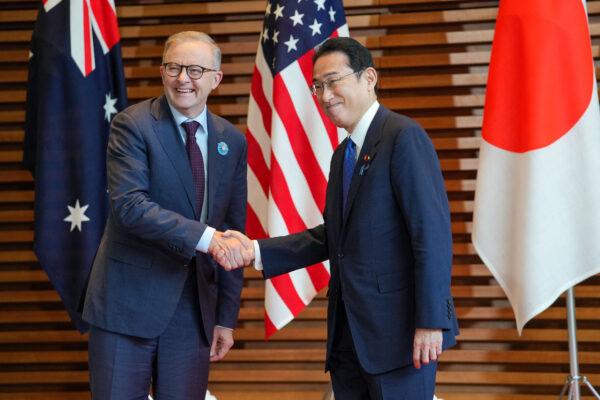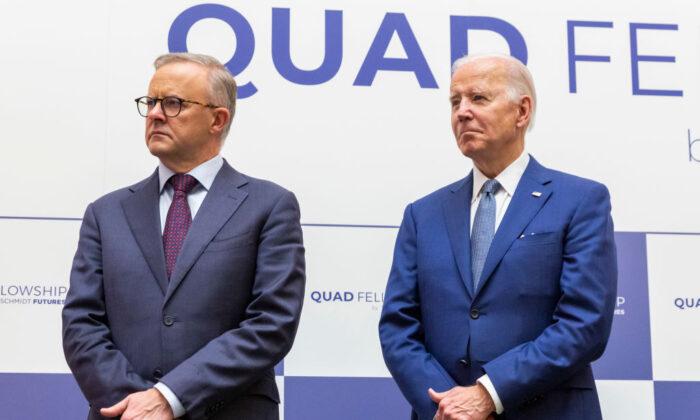New Prime Minister Anthony Albanese has continued Australia’s tough stance towards Beijing’s economic coercion on local exporters, telling the Chinese regime that it should remove tariffs on export products if it wished to see diplomatic ties restored.
This comes after Chinese Communist Party (CCP) Premier Li Keqiang sent a congratulatory letter to the new prime minister, breaking a two-year hiatus on high-level diplomatic communication with Australian leaders.
He also called on the Australian government to remember that it had been 50 years since the start of the diplomatic relations between the two countries, which was established in 1971 after a visit to China by then-Labor Prime Minister Gough Whitlam. The move by the Whitlam Labor government helped spur the establishment of diplomatic ties between the CCP and Western countries.
However, Albanese appeared unwilling to compromise in the face of the overture, noting that his government would not agree to any demands from Beijing.
The prime minister also signalled that Beijing should withdraw the 14 demands made in 2020 at the start of the diplomatic freeze, calling them “entirely inappropriate.”
“Australia is a great democracy. We stand for our values, which are consistent,” Albanese said. “I, whenever asked—must have been hundreds of times now—have said that the demands, which were placed by China, are entirely inappropriate. We reject all of them. We will determine our own values. We will determine Australia’s future direction. ”

The comments from the prime minister come as he meets with U.S. President Joe Biden, Japanese Prime Minister Fumio Kishida, and Indian Prime Minister Narendra Modi for the Quadrilateral Security Dialogue (Quad) in Tokyo, where a major focus has been the Beijing–Solomon Islands security deal, a key part of the CCP’s influence campaign in the Pacific.
“We know that’s the case. Australia is responding to that, along with the United States,” Albanese said. “We discussed the need for the Quad to engage more in the Indo-Pacific. That was a general theme—how do we engage, how do we make sure that we push our shared values in the region at a time when China is clearly seeking to exert more influence?”
The prime minister said he mentioned the Labor Party’s new Pacific plan, including the Australia Pacific Defence Training Facility and permanent and temporary migration programs for Pacific workers. He also signalled the Australian government’s willingness to engage more deeply in the region on the issue of maritime security.
“Fish stocks are so important for our Pacific Island neighbours. We spoke about that. We spoke about climate change and the need for support for climate change infrastructure in the region,” he said.




